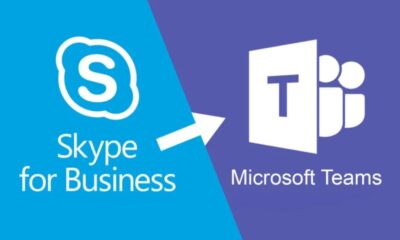Business
Advice to Prevent Typical Retirement Plan Mistakes

One hassle after another results from not adhering to Internal Revenue Code and ERISA regulations. You must ensure that your plan document meets these requirements in order to avoid common mistakes, but you must also ensure that you are adhering to the provisions of your plan document. These are some typical mistakes and useful advice on how to avoid them.
1. Plan Documents: A Small Mistake With a Significant Consequence
Ensure that the necessary paperwork is included with your plan. Although it may appear easy, this is one of the most frequent mistakes. The Internal Revenue Code and ERISA regulations must be met by your plan paperwork. For instance, as required by law, you must sign and date the plan document, sign and date any revisions, adopt amendments in the manner specified by your plan, and provide participants and beneficiaries with your Summary Plan Description (SPD).
2. Qualifications: Hold on, Did Jim Qualify for Last Year’s Event?
Errors concerning who is eligible to participate and when they do so are also frequent. Refer to your plan document frequently to ensure that qualified participants are enrolled on time. It outlines eligibility. Certain employees are also frequently left out of plan documentation, either because they are ineligible or because they are covered by another plan. For example, retirement plans frequently do not include seasonal or temporary workers, and union employees occasionally have different plans that are tailored to the conditions of their collective bargaining agreement. It is necessary that you apply these exclusions appropriately and consistently.
3. Contributing: Timing Is Everything
Typically, plan documents specify the dates by which contributions must be made. Depending on the type of contribution, these dates may change (e.g., employer contributions may have a later deadline, while employee elective deferrals must be deposited as soon as reasonably possible). After the deadline, contributions are considered received late. payments that are made after the deadline or that are not made regularly in a timely manner may need to be corrected, which may involve self-correction, government filings, and further payments to make up for missed wages. Establish procedures to assist guarantee payments are consistently made by that date, and discuss with your payroll provider how early you may realistically make contributions in order to avoid mistakes.
4. Loans: Put The Guidelines In Writing and Abide By Them
While it’s not necessary for 401(k) programs to provide loans, participants may be able to accept loans. If so, written borrowing processes must be followed. Particularly with regard to repayment periods, the maximum number of loans, and the terms and method for taking out loans, the plan administrator (or the loan administrator, if distinct) should always adhere to the documented procedures. Errors pertaining to loan payments or noncompliance with lending protocols frequently need to be fixed.
5. Fiduciary Obligations: Document, document, document.
It is impossible to overestimate the value of documentation. Retirement plan fiduciaries bear particular obligations towards plan members and beneficiaries; yet, such fiduciary responsibilities also carry high potential liabilities! Completing these duties is but a portion of the commitment. It matters how fiduciaries fulfill their obligations, as does the documentation of such compliance. Clear explanations of the decision-making process are given through documentation, which also helps to deter speculative thinking by people outside the process. Additionally, it lessens the chance that a fiduciary will fulfill their obligations under fiduciary law at the time of a claim but be unable to substantiate it thereafter.
These are but a few of the typical mistakes we observe in retirement plans. Often, it is easy to avoid these mistakes, and taking preventative action is less difficult than taking corrective action.
-

 Business2 weeks ago
Business2 weeks agoNayef Doleh Examines International Humanitarian Fundraising Strategies
-

 Business3 weeks ago
Business3 weeks agoHow Black Banx is Redefining Global Banking Strategies in 2025
-

 Business2 weeks ago
Business2 weeks agoHow to fill MSME Form 1? Step-by-Step Guide
-

 Tech4 weeks ago
Tech4 weeks agoHow to Switch Between Microsoft Teams and Skype, How To Export Messages, Files, and Contacts from Skype Before It Shutting Down
-

 Business4 weeks ago
Business4 weeks agoPurpose of the AIRdiamond Project
-

 Tech3 weeks ago
Tech3 weeks agoMicrosoft Teams to End SMS Messaging Feature Support for Android Phones and Switch to Phone Link App as Alternative
-

 Education3 weeks ago
Education3 weeks agoSchool Of Odd Thinkers – Think Odd, Learn a lot, and Earn a lot
-

 Education3 weeks ago
Education3 weeks agoThe Power of Differentiated Instruction: Patrick Granfar Discusses Its Impact on Student Learning

























